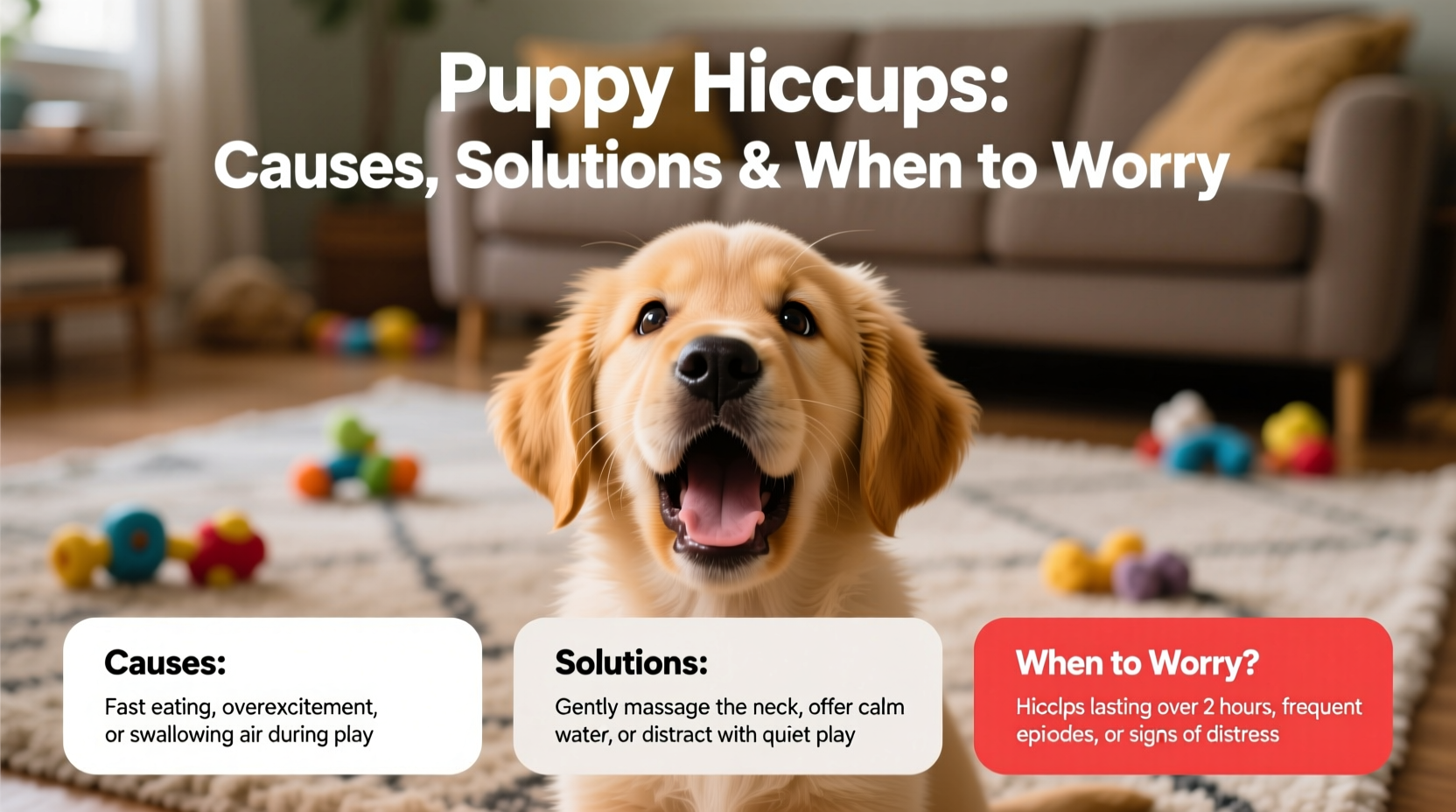Puppy hiccups are a common occurrence that can surprise new pet owners. While they often appear alarming, especially in tiny, wriggling pups, they are usually harmless and short-lived. Hiccups result from involuntary contractions of the diaphragm, just as in humans, and are more frequent in puppies than in adult dogs. Understanding why they happen, how to manage them, and when to seek veterinary guidance ensures your pup stays healthy and comfortable during their early development.
What Causes Puppy Hiccups?

Hiccups in puppies are primarily linked to normal physiological processes related to growth, digestion, and behavior. The immature nervous system and developing digestive tract make young dogs more prone to spasms in the diaphragm. Common triggers include:
- Eating or drinking too quickly: Rapid ingestion of food or water can cause air swallowing, leading to stomach distension and irritation of the diaphragm.
- Excitement or overstimulation: Playful bursts of energy increase breathing rate and may trigger muscle spasms.
- Digestive changes: Transitioning between milk and solid food can affect stomach motility and gas production.
- Temperature shifts: Cold environments may stimulate muscle contractions, including those in the diaphragm.
- Immature nervous system: Puppies’ neurological pathways are still developing, making them more susceptible to reflexive actions like hiccups.
These factors typically result in brief episodes lasting only a few minutes. In most cases, no intervention is needed beyond gentle reassurance.
Effective Solutions to Stop Puppy Hiccups
While hiccups usually resolve on their own, there are several safe and practical ways to help soothe your puppy if an episode persists or seems uncomfortable.
Encourage Gentle Movement
Light physical activity—such as a slow walk or gentle play—can shift breathing patterns and interrupt the hiccup cycle. Movement helps regulate the diaphragm and promotes burping if excess air is trapped.
Offer a Small Drink of Water
Drinking water can soothe the esophagus and disrupt the spasm pattern. Use room-temperature water and let your puppy sip slowly. Avoid force-feeding or pouring water, as this could lead to aspiration.
Provide Calm Reassurance
If your puppy appears anxious during hiccups, sit with them quietly, speak in a soft tone, or offer light petting. Stress can prolong episodes, so creating a calm environment supports faster resolution.
Adjust Feeding Habits
Prevention starts at mealtime. Feed smaller portions more frequently throughout the day and avoid vigorous play immediately before or after eating. Elevated feeders may also reduce air ingestion in some breeds.
“Puppy hiccups are almost always benign. What matters most is consistency in feeding routines and minimizing stressors.” — Dr. Lena Patel, DVM, Small Animal Specialist
When Should You Worry About Puppy Hiccups?
Most hiccup episodes last less than 10–15 minutes and occur sporadically. However, certain signs warrant closer attention or a veterinary consultation:
| Symptom | Normal (Typical) | Concerning (Seek Advice) |
|---|---|---|
| Duration | Under 15 minutes | Over 1 hour or recurring frequently |
| Frequency | Occasional (once daily or less) | Multiple times per day for several days |
| Behavior During Episode | Calm, continues normal activity | Distressed, lethargic, or struggling to breathe |
| Associated Symptoms | None | Vomiting, coughing, loss of appetite |
Persistent hiccups may indicate underlying gastrointestinal issues, respiratory conditions, or even neurological abnormalities. If your puppy shows signs of discomfort, fails to gain weight, or develops other symptoms alongside frequent hiccups, schedule a vet visit promptly.
Step-by-Step Guide to Managing Recurrent Hiccups
If your puppy experiences regular hiccup episodes, follow this structured approach to identify and address potential causes:
- Observe and record: Note the time, duration, and context of each episode (e.g., after meals, during play).
- Review feeding routine: Ensure meals are age-appropriate, portion-controlled, and not consumed too rapidly.
- Limit post-meal activity: Restrict intense play for at least 30 minutes after eating.
- Check environmental factors: Keep your puppy warm and away from drafts or sudden temperature changes.
- Consult your veterinarian: Share your observations and rule out medical causes such as reflux, parasites, or infection.
Real-Life Example: Max, the Overexcited Labrador Puppy
Max, a 9-week-old Labrador Retriever, began hiccupping multiple times a day, often right after meals. His owner initially worried about his health but noticed a pattern: the hiccups occurred most often after he gulped down his kibble in under a minute. Following advice from her vet, she switched to a slow-feeder bowl and introduced brief walks after eating. Within two days, the frequency dropped dramatically. By week three, hiccups were rare and short-lived. This case highlights how simple behavioral adjustments can resolve what seems like a persistent issue.
Frequently Asked Questions
Can teething cause puppy hiccups?
Teething itself doesn’t directly cause hiccups, but the increased drooling and swallowing of saliva—and sometimes air—during this phase may contribute to diaphragmatic irritation. Teething puppies also tend to chew more, which can alter breathing patterns temporarily.
Are certain breeds more prone to hiccups?
There’s no strong evidence linking specific breeds to higher hiccup frequency. However, small or toy breeds with faster metabolisms and higher excitement levels may experience them slightly more often due to rapid breathing and eating habits.
Should I wake my puppy if they’re hiccupping while sleeping?
No. Hiccups during sleep are common and typically go unnoticed by the puppy. Interrupting their rest can cause unnecessary stress. Let the episode pass naturally unless it lasts unusually long or is accompanied by distress signals.
Final Thoughts: Knowing What’s Normal
Puppy hiccups are a natural part of early development and rarely a cause for alarm. They reflect the dynamic changes occurring in a young dog’s body as it grows and adapts. With attentive care, proper feeding practices, and awareness of red flags, you can ensure your puppy remains comfortable and healthy.
Understanding the difference between typical developmental quirks and signs of concern empowers you to respond appropriately. Most puppies outgrow frequent hiccups by 6 months of age as their nervous and digestive systems mature.









 浙公网安备
33010002000092号
浙公网安备
33010002000092号 浙B2-20120091-4
浙B2-20120091-4
Comments
No comments yet. Why don't you start the discussion?